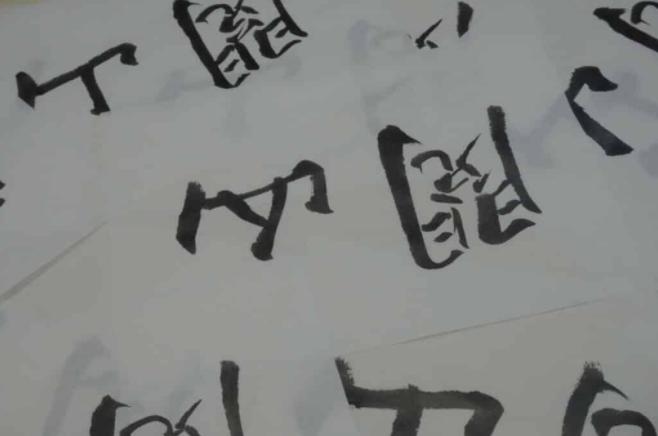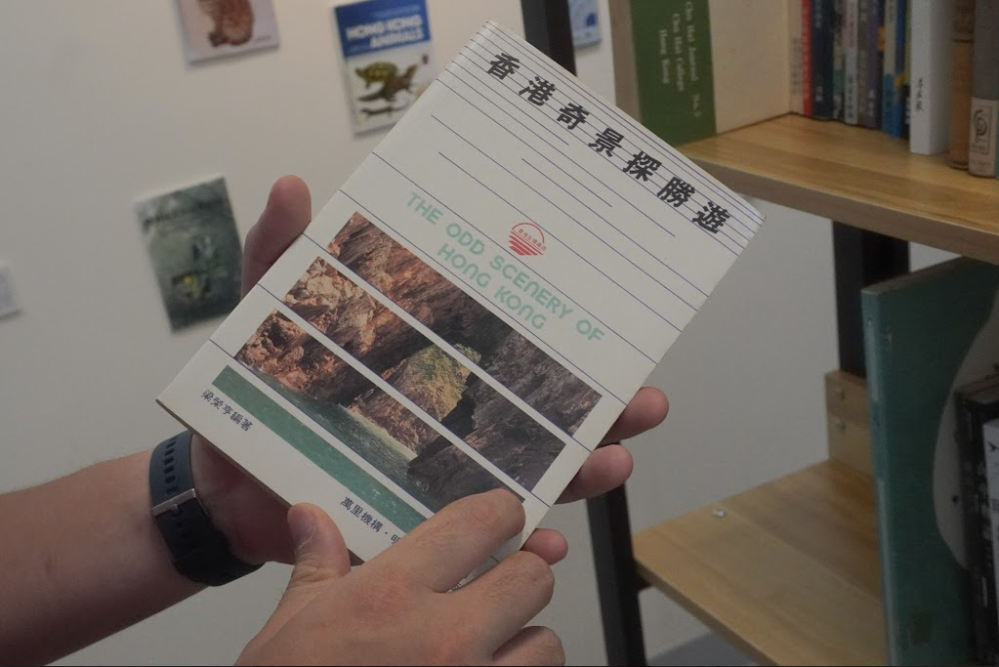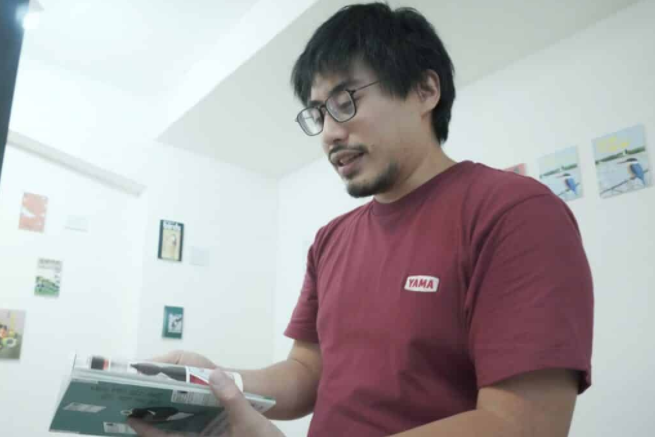
/
There are mountains, there are books and there are memories "Reading the Mountains" Book Fair: Recording Hong Kong's History with Nature to Resist Forgotten
The evening of the visit was a Wednesday, and the exhibition "Yueshan" will be held on Friday. Curator Matthieu and the exhibition team are thinking about which calligraphy of "Yueshan" should be used in the exhibition venue. "Let's just use this. The word 'mountain' has both 'mountain' and 'person'." Someone said after thinking for a while, and others quickly agreed.
In fact, we are a community with nature.
Curator Matthieu believes that to record the history of Hong Kong, we must not only record the city and people, but also the countryside and other creatures are part of Hong Kong. Matthieu hopes that he can record Hong Kong from the perspective of the countryside and nature. In the "Reading the Mountains" exhibition, you will find Matthieu's collection of books, divided into three categories: routes, literature and natural ecology. Some of these collections are from the 1970s and some are from 2021. Here, you can touch the ecological history of Hong Kong over the past 50 years. "70% of Hong Kong's area is in the countryside and green areas. About 40% of the real countryside is in the countryside. Half of the area is a 'big wok' if you don't understand it," Matthieu said. Take a trip to the "Mountain Reading" exhibition and let Matthieu show you the other half of Hong Kong.

Coexisting with ecology in Hong Kong "We are also a community"
Why is Hong Kong's countryside worth recording?
In the mountains, we can find human footprints. Matthieu believes that mountains and cities are closely related and inseparable. "Some places that used to be mountains have turned into cities, and some places that used to be cities are now submerged in the wilderness." Matthieu explained, "Some of the suburbs were places that used to belong to cities. Later, people moved to the cities, and the countryside declined. However, there are still some traces of living in the countryside...and abandoned villages will be found."
But for Matthieu, just recording "people" is not enough. In recent years, more and more people have studied the city of Hong Kong. Matthieu believes that it is important to study Hong Kong-style architecture, but these are still about people. Matthieu recalled the ecology course he took before, "Ecology is mainly about people, thinking that people are the biggest and can handle (manage) other organisms. But now ecology is about that we are a community with other animals and plants." .
Matthieu said that Hong Kong's biodiversity is very rich. For example, there are more than 20 kinds of frogs, more than 200 kinds of butterflies, and more than 50 kinds of snakes. Matthieu believes that biodiversity is a characteristic of Hong Kong's countryside and should be conserved. "It would be a pity if these creatures that coexist with us disappear. We have a responsibility to remember these creatures that once coexisted with us in the city." Matthieu further emphasized, "We often say that we are Hong Kong people, and those animals are also Hong Kong animals. They should also have the label of 'Hong Kong people'."

Books are important historical carriers
Matthieu felt that it was important to document nature in books. Matthieu believes that the book is a more rigorous carrier, "The information on the Internet is very developed, there will be forty or fifty hiking websites when you search for hiking routes on the Internet, and the online information is sometimes unreliable. some". More importantly, though, Matthieu believes that books can resist forgetting.
"One day when the Internet disappears, these (history) will disappear. How can we pass this information to the next generation? That's why books are the carrier."
Matthieu pointed out that looking at old and new animal illustrations can see changes in history, "From the first edition (of the illustrated book) to the second edition to the third edition, you will see that the number of (creatures) before is a little less, and then ( Pokédex) is getting thicker, the information is getting more complete, and more and more are being discovered.” Matthieu also said that the progress of science and technology and the change of the times can be seen from the picture book.
In the exhibition, there is a series of illustrated books called "Birds of Hong Kong", which Matthieu would like to introduce to Hong Kong people. Matthieu stocked up from the first edition in 1977 to the eighth edition in the 2000s. The birds in these books are all painted by artist Karen Phillipps, "Karen Phillipps helped the birds in Hong Kong to draw beautiful paintings, and he painted them very carefully. How is the boy?" Matthieu said that when he first started saving, Karen Phillipps was still alive, but after Karen Phillipps passed away in February 2020, Matthieu wanted to save a set of books to commemorate all her contributions to Hong Kong's ecology.

"Many creatures in Hong Kong were recorded by foreigners for us. They were born in foreign countries before, came to Hong Kong for work, took root in Hong Kong, and did a lot for Hong Kong... (As a Hong Konger), you can also think about what you do for this place. Do your bit." Matthieu said that many of the books in the exhibition were purchased from overseas, some in the UK and some in Japan. He was not reconciled that the ecological history was written by foreigners. I think Hong Kong people have a responsibility to pass on the ecological history.
Matthieu: I hope everyone can find their role in the era
Matthieu believes that capable people should try their best to do one thing to resist the forgotten history. Everyone has a different role, and he himself can contribute to the hiking and tourism ecology in Hong Kong. Matthieu feels that the countryside of Hong Kong carries a lot of history, all of which are original characteristics of Hong Kong, just like our identity. If one day we forget, we may no longer have this identity.
Matthieu said that the books in the exhibition are all related to Hong Kong, and there will definitely be books that will be "clicked" with you. Matthieu also hopes that those who come to the exhibition can think about what they can contribute to Hong Kong and "keep this growing place to (its) name".
(This article was published in "HK FEATURE" on October 8, 2021)
Like my work?
Don't forget to support or like, so I know you are with me..
Comment…